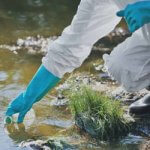Maybe you’re considering getting a qualification in science and want to know your long term career options. Or maybe you’ve already completed an online science course but don’t know what to do next. No matter your reasons, the good news is there are tonnes of careers you can explore that don’t require petri dishes or endless hours in a lab.
In fact, your options are limitless…
In this article, we shall put this point to the test and examine some of the most ‘alternative’ science career routes out there:
- Communications and outreach – from science writer and journalist to museum education officer and event manager; you can take your solid knowledge of science, share it with the public/government/schools/universities and give the world an insight into science;
- Consultancy – working as a management consultant is ideal for scientists looking for a career beyond lab work and research. Instead, you can use your analytical skills to solve client problems and boost efficiency;
- Funding and administration – working for the likes of BBSRC, EPSRC, MRC and STFC (Research Councils in the UK), you can keep up-to-date with the latest scientific developments and help support research by assisting with grant applications;
- Patent Law – if you’re interested in assessing new inventions and dealing with applications, then a career working as a patent attorney/examiner/solicitor may be for you. NOTE: you will need a degree in science, engineering, mathematics, etc. to help you determine if new inventions are worth patenting;
- Manufacturing and production – you can take your science skills in a different direction by exploring a career in the engineering and manufacturing industry. Here you could choose to work as a health and safety inspector (assessing risks); a product/process development scientist; a quality manager or nuclear engineer;
- Medical sales rep – working on behalf of pharmaceutical companies, as a medical sales rep you’d be expected to sell medicines, medical equipment and prescription drugs to GPs, hospital doctors, pharmacists and dentists;
- Publishing – you can take your scientific knowledge and use it to work for a publisher who specialises in this niche. This can range from proofreading and editing, to writing for university papers and science blogs, to taking part in the actual production process;
- Science policy – here you would be expected to use your intellect to assist in identifying, analysing and formulating policy within the public, private and voluntary sectors e.g. charities, the government, professional bodies (e.g. Royal Society of Chemistry) and Parliamentary Office of Science and Technology;
- Teaching – if you’re passionate about science and want to share your love with others then working as a teacher could be the career for you. From primary schools all the way to further education, you could pass on your experience to future generations.
As you can see, there is more to science than being stuck in a lab. In truth, there are a number of career routes you can take with a science qualification.
To learn more about your online science course options and how you can use them to climb the career ladder, visit our website today.





Comments (0)
Join the conversationCancel Reply